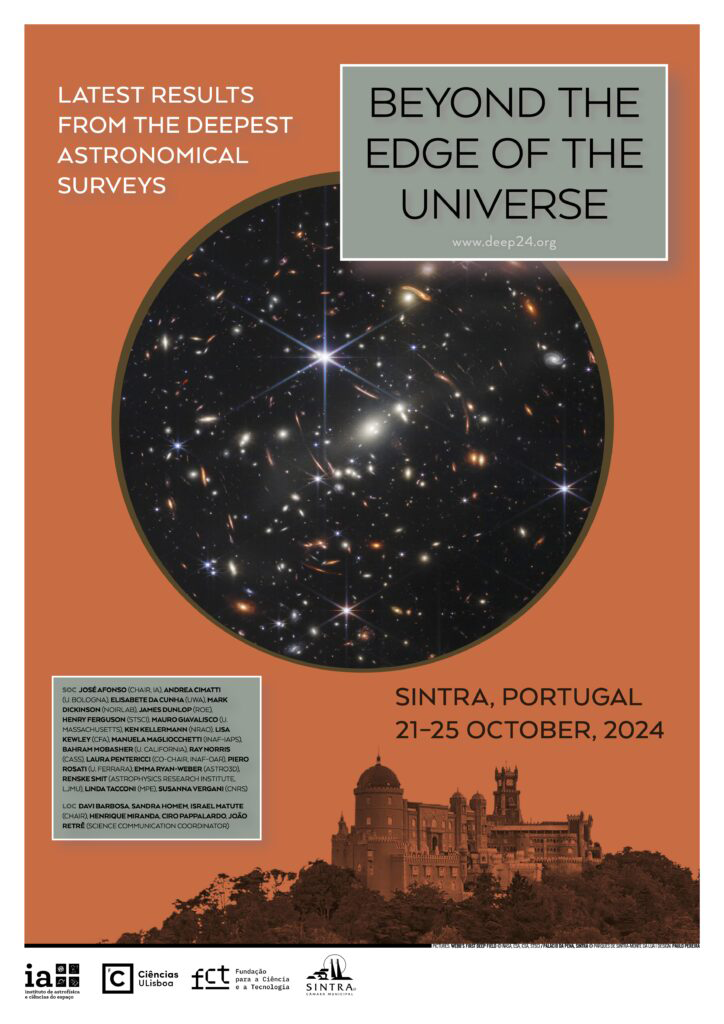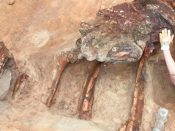After the success of the first two installments of this conference series (“At the Edge of the Universe” in 2006 and “Back at the Edge of the Universe” in 2015), it’s time to return to beautiful Sintra and discuss the latest achievements of the deepest observations of the Universe.
This time, we find ourselves exploring the observations that were so eagerly anticipated 9 years ago (and mostly only dreamt of 18 years ago), in what is truly a transformative epoch in our understanding of galaxy formation and evolution. With remarkable observational facilities pushing the boundaries of the observable Universe to uncharted territory, from X-rays to radio wavelengths, we are now closer than ever to witnessing the formation of the first structures (stars, galaxies, clusters) in the Universe.
Are we living the moment when we finally grasp how galaxies form? Can we unveil the emergence of the first stars and determine if they fully account for the energetic radiation that reionised the neutral intergalactic medium? Can we finally pinpoint the role of supermassive black holes for galaxy assembly, and how they come to exist within a few hundred Myr after the Big Bang? Can the deepest observations reveal the intricate and evolving relationship between star-formation and AGN activity, leading to the quick establishment of galaxies?
Is the current generation of powerful space-based telescopes like JWST and EUCLID, and ground-based facilities such as ALMA, VLT or the SKA-precursors, able to settle one of the most pressing issues of modern research?
Continuing the tradition set by previous editions of this nine-year conference, we aim to analyse galaxy formation and evolution in the light of the deepest astronomical observations. The focus is on the latest observational results, and on how they shape, and are interpreted by, the latest theoretical framework.





















